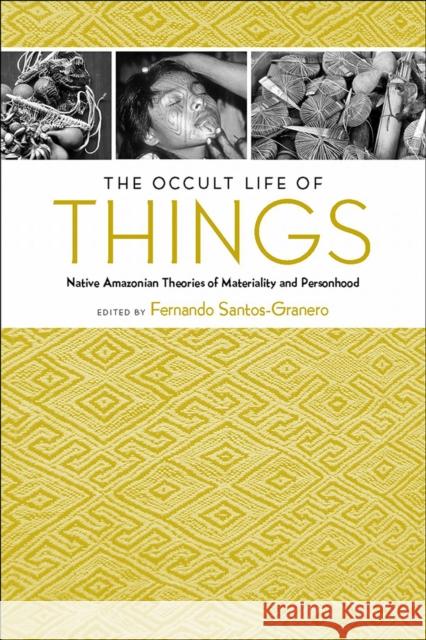The Occult Life of Things: Native Amazonian Theories of Materiality and Personhood » książka
The Occult Life of Things: Native Amazonian Theories of Materiality and Personhood
ISBN-13: 9780816530427 / Angielski / Miękka / 2013 / 288 str.
The Occult Life of Things: Native Amazonian Theories of Materiality and Personhood
ISBN-13: 9780816530427 / Angielski / Miękka / 2013 / 288 str.
(netto: 115,14 VAT: 5%)
Najniższa cena z 30 dni: 115,83
ok. 30 dni roboczych
Bez gwarancji dostawy przed świętami
Darmowa dostawa!
Native peoples of the Amazon view objects, especially human artifacts, as the first cosmic creations and the building blocks from which the natural world has been shaped. In these constructional cosmologies, spears became the stings of wasps, hammocks became spiderwebs, stools became the buttocks of human beings. A view so antithetical to Western thought offers a refreshing perspective on the place and role of objects in human social life-one that has remained under-studied in Amazonian anthropology. In this book, ten scholars re-introduce objects to contemporary studies of animism in order to explore how various peoples envision the lives of material objects: the occult, or extraordinary, lives of "things," whose personas are normally not visible to lay people. Combining linguistic, ethnological, and historical perspectives, the contributors draw on a wealth of information gathered from ten Amerindian peoples belonging to seven different linguistic families to identify the basic tenets of what might be called a native Amazonian theory of materiality and personhood. They consider which objects have subjective dimensions and how they are manifested, focusing on three domains regarding Amazonian conceptions of things: the subjective life of objects, considering which things have a subjective dimension; the social life of things, seeing the diverse ways in which human beings and things relate as subjectivities; and the historical life of things, recognizing the fact that some things have value as ritual objects or heirlooms. These chapters demonstrate how native Amazonian peoples view animals, plants, and things as "subjectivities" possessing agency, intentionality, and consciousness, as well as a composite anatomy. They also show how materiality is intimately linked to notions of personhood, with artifacts classified as natural or divine creations and living beings viewed as cultural or constructed. The Occult Life of Things offers original insights into these elaborate native ontologies as it breaks new ground in Amazonian studies.











